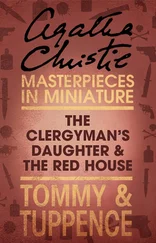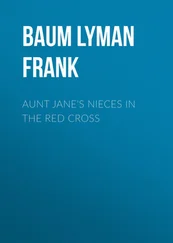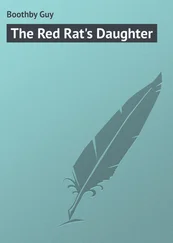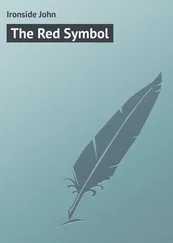—
“Anything you want to tell me?” Dick Thompson opened our conversation once the waitress (Mexican, wearing what looked like some sort of Irish Renaissance costume, with fitted bodice and puffed sleeves) had left us our drinks and gone away.
“You called me,” I pointed out.
“Come on, Peter. This is what I do for a living, remember.”
“Irish bars with Mexican waitresses?”
Dick smiled enigmatically. “Secrets.”
“Ah.”
“I’m going to level with you. Our Russian friend’s looking increasingly unstable. I’m telling you, Pete, if you’re not careful you’re going to end up inside her head, seeing the world the way she does.”
I was silent.
“Think of Martha and Jean, at least,” Dick said.
“You think I don’t?”
“Don’t get testy. I’m trying to help.”
“I never asked her to leave her country, Dick. Or to come to this one. It wasn’t my idea. I never wanted to get involved in any of it.”
“History doesn’t happen because we ask for it, Peter. It just fucking happens. We all deal with it as best we can.”
—
Before I left for Penn Station, Dick handed me an unmarked envelope. “For the train,” he said, patting me sympathetically on the shoulder. “Do me a favor and burn it all when you get home.”
Every seat on the 7:49 to Princeton was full; to find any privacy I had to go stand in the clattering vestibule between cars. The envelope I’d been given contained copies of four classified documents relating to Josef Alliluyev, thirty-year-old son of Svetlana Alliluyeva and her first husband, Grigori Morozov, and his repeated but thus far failed attempts over the previous two years to open channels of communication with his mother in the United States through the intermediation of someone named Krimsky—the same “American journalist” who’d written the note I’d received at my office concerning Josef’s desire to visit his mother in America, and whom Dick Thompson deemed likely to be in the employ of the KGB. According to the very brief note I was now reading on the New Jersey Transit train as it rattled away from Manhattan, also from Krimsky, “Josef Alliluyev has lately been expressing deep concern, even panic, about possible punishments befalling him if he does not cease all attempts to visit his mother immediately.”
The second document was a copied translation of an undated memo to the Central Committee of the Communist Party by KGB head Yuri Andropov:
In a letter that we intercepted, Josef Alliluev [ sic ] complains about his loneliness after the divorce from his wife, about how he misses his mother, wants to see her. It is established that he has intentions to go abroad. In the past years, Josef Alliluev developed irritation, lost interest in social life, abuses alcoholic beverages. It seems rational for the Ministry of Health of the USSR to offer him more attention as a young doctor and for the Ministry of Health of the USSR to exchange his apartment for a better one.
The third document was a copy of an internal CIA memo confirming another, more recently intercepted note from Krimsky stating that Josef Alliluyev not only had broken off all contact with him (Krimsky) and was no longer seeking to reunite with his mother but had just moved into a new apartment, significantly nicer than his previous residence, made available to him by the Soviet government.
Affixed to this third document by a paper clip was a fourth—a plain white index card on which Dick Thompson had written:
“So Krimsky not on other team after all. JA staying put. Preferable for you to be one to tell S.”
—
She greeted me at the front door of her house with a long vodka kiss, ice cubes rattling in the tall glass she was holding.
“Peter, what a nice surprise. Drink?”
“Maybe in a minute.”
She put her hand under my suit jacket, flat against my chest, then tilted her head back and gave me a long look; for an unpleasant moment, I thought she’d somehow guessed why I’d come. But no, it was just the vodka shining through, and as I followed her into her living room I felt the gratifying reprieve of wanting her all over again.
“How long can you stay?”
“I’m not in a hurry.”
“We can watch Dick Cavett together.” A sly, booze-lit smile. “Maybe try some other things too.”
Downing the last of her drink, she turned and kissed me again, the vodka metallic and cool in the heat of her mouth. Her movements looser from the alcohol, I could feel it, her temperature warmer. And the truth was that, as Dick Thompson’s documents burned a hole in my briefcase, her buzz excited me while giving me an uneasy pause of foreboding. I wanted to hold her and make love to her. But I also knew that however happy she was to see me right now, however passionate and loving, the moment she recollected that Dick and I had told her to act as if Josef’s intentions to see her weren’t genuine, forcing her to turn her back on his pleas, the very intensity of her emotional high would turn on itself, and something darker and raging would appear in her heart.
“You like this Barry Manilow?”
“Who?”
As I spoke, I realized that the TV was on and tuned, as ever, to The Dick Cavett Show —where some skinny guy with a mop of blond hair, wearing a sequined tuxedo, was nasally belting out a pop ballad:
Well you came and you gave without taking
But I sent you away, ohhh Mandy
And you kissed me and stopped me from shaking
And I need you today, ohhh Mandy…
“Not especially.”
“I like him,” she announced. “Even if this Mandy is kind of a simpleton. But the man himself has a good heart, don’t you think?”
“I’ll take your word for it.”
“So you’ll have a drink with me?”
I had to smile. “Why not?”
“Why not, indeed. But first, my dear lawyer, you must relax and stay awhile in my company. Take off your tie and jacket. And let’s put this down, hm?”
Before I understood what was happening, she had begun tugging gently at the briefcase in my hands, trying to take it from me.
“Come now, Mr. Horvath,” she teased. “Work is over for the day. Everything here is for free.”
“I’m sorry,” I said tightly. “It’s just… I have some papers I need to show you.”
Instantly, her face became a tense question.
“What papers?” she demanded.
I looked at her.
“Svetlana, Dick wanted me to show you some documents.”
“Which documents?”
“They concern Josef.”
“My Josef?”
“Yes.”
Now her eyes—those eyes with their untamable streaks of yellow—appeared lacquered with suspicion in the room’s light.
“So after all, Peter, this was why you came to my house tonight,” she concluded quietly. “To show me documents.”
“Yes.”
“Very well. So show them to me.”
Having stepped into this blind alleyway, I didn’t see what else I could do. I opened my briefcase, removed the papers, and handed them to her.
“They’re copies,” I explained, as if that made a difference.
She read them as I had—one at a time, in order.
And I watched as an understanding of the situation hit her in stages, like a series of small, invisibly landed blows. Until, at last, her body was bent at the waist in a mother’s anguish.
“I will never see my son again.”
“You don’t know that.”
“Yes, I do. I know.” She moaned softly. “Oh, my Josef. My son.”
Her grief, which I had delivered to her, was awful to witness. I had no idea how to comfort her.
“Let me hold you.”
But as I held her, I could feel her begin to change. Like water freezing to ice, she turned rigid and cold, bristling with suspicion and rage—until, without a word having passed between us, it was clear to me that, just as I’d always dreaded, I was now her enemy.
Читать дальше












